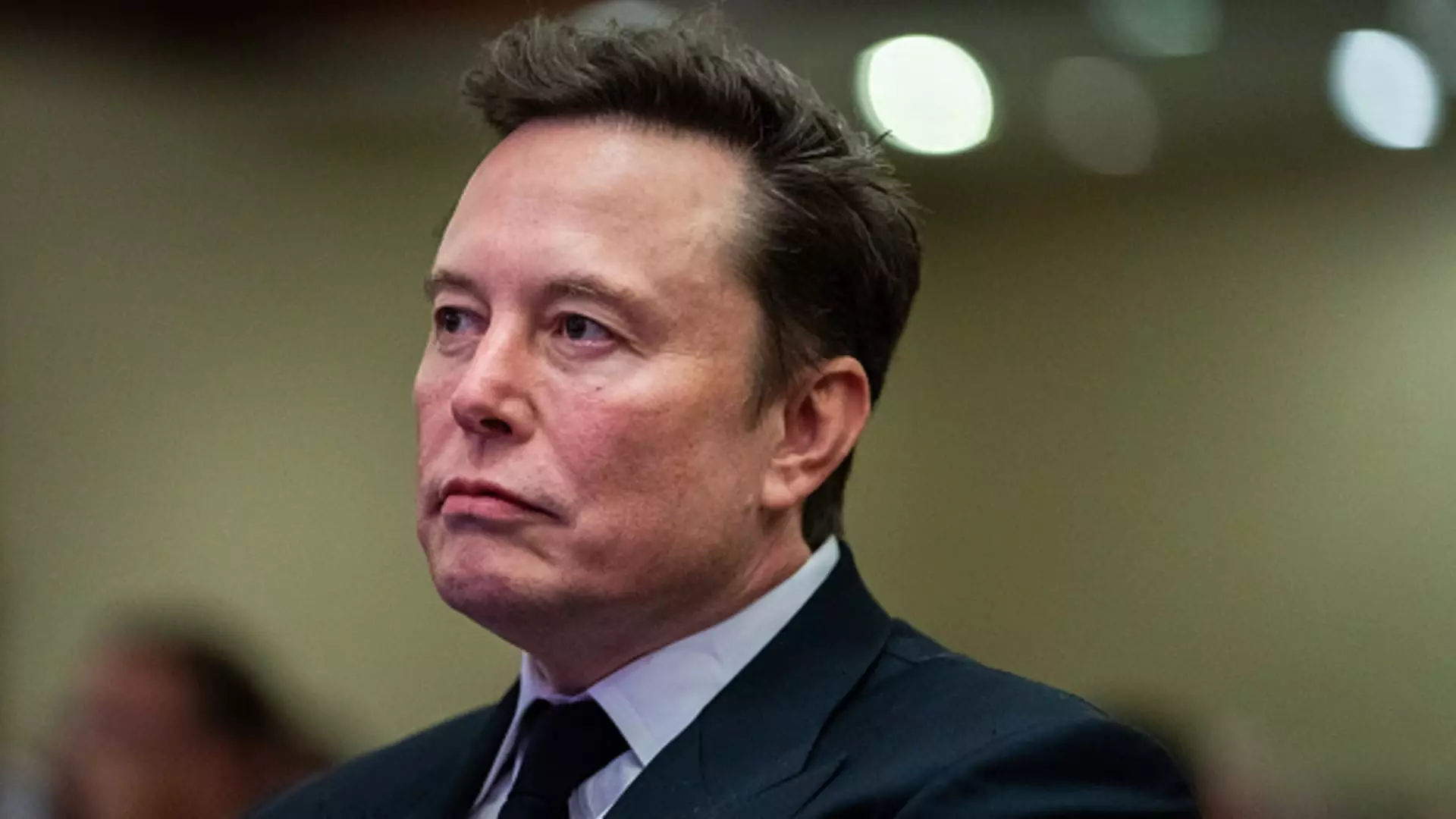The complex relationship between Elon Musk, the renowned CEO of Tesla and SpaceX, and the U.S. Securities and Exchange Commission (SEC) continues to draw significant public interest and media scrutiny. Recently, an alarming revelation surfaced when Musk disclosed via social media that the SEC had put forward a “settlement demand.” This development raises critical questions about the intersection of innovation, regulation, and the accountability of high-profile figures in the tech industry. The SEC’s insistence on a quick resolution and the allegations surrounding Musk’s financial dealings add layers to an already convoluted narrative.
At the heart of the SEC’s investigation is whether Musk engaged in securities fraud related to his transactions involving Tesla stocks and Twitter shares, now rebranded as “X.” According to insiders, the SEC’s approach appeared aggressive, pressuring Musk to accept a settlement along with possible financial penalties. The significance of this is manifold; it underscores the SEC’s role in overseeing corporate governance and its capacity to intervene when it suspects securities violations.
The letter penned by Musk’s attorney, Alex Spiro, to SEC Chair Gary Gensler details a range of claims, including alleged threats of charges if a settlement is not reached within a stringent timeframe. This kind of pressure might lead to perceptions of a regulatory overreach, especially considering Musk’s history with the SEC, which dates back to a controversial 2018 incident where Musk faced charges for misleading investors via a now-infamous tweet about taking Tesla private.
Musk’s responses to the SEC’s actions have been characteristically provocative. By sharing a satirical AI-generated image portraying Gensler as a snail, Musk employs humor as a shield against the agency’s approach. Such tactics not only reinforce Musk’s personal brand as a maverick but also highlight his ongoing frustration with regulatory bodies. His rhetoric—“Oh Gary, how could you do this to me?”—not only reflects his apparent incredulity but also points toward a broader resistance against what he perceives as relentless scrutiny by government entities.
This dynamic relationship is emblematic of the ongoing culture clash between regulatory frameworks and entrepreneurial innovation. Musk embodies defiance against traditional regulatory measures, but it also poses important questions about responsible communication and transparency in business dealings, especially in an industry as volatile as technology.
The SEC’s role in regulating high-profile executives is complicated by the increasing intersection of technology and financial markets. As Musk evolves from a tech revolutionary to a significant player in the financial sector, the SEC’s vigilance becomes increasingly relevant. The notion that successful entrepreneurs must also grapple with compliance and transparency is crucial in ensuring that investor interests are protected.
The pushback Musk is experiencing can be seen as part of the SEC’s broader agenda to maintain fair play in securities trading. The agency’s investigation into Musk’s dealings surrounding Twitter is illustrative of a larger challenge: balancing innovation with investor protection. While Musk’s influence and celebrity allow him to navigate these issues with a robust public persona, less prominent executives may not wield the same resilience against regulatory oversight.
Musk’s history with the SEC is rife with conflict, stretching back several years. In 2018, he and Tesla were both fined $20 million following allegations of securities fraud linked to tweets that misled investors. Although a revised settlement permitted Musk to step down as Tesla’s chairman temporarily, his ongoing perceived victimization has fostered a narrative of Musky persecution by the SEC.
This contentious history informs both Musk’s defensive posturing and the SEC’s positioning as a necessary watchdog. However, the question remains whether the SEC’s approach, perceived as aggressive or even punitive, undermines its credibility as a regulatory body. Continuous investigations and pressure may raise concerns about the agency’s biases and objectives, especially considering Musk has become a politically polarizing figure.
As Musk continues to push boundaries across multiple sectors, the ramifications of these legal entanglements will likely shape his future actions and decisions, as well as those of other leaders in the tech industry. The unfolding drama with the SEC exemplifies the tension that often exists when rapid innovation meets rigid regulatory frameworks. While Musk’s narrative is compelling, it prompts broader societal inquiries about the nature of oversight, accountability, and the alignment of innovation with ethical financial practices moving forward. In essence, the story of Elon Musk versus the SEC is not merely about one individual’s clash with regulation; it serves as a microcosm of the challenges facing modern capitalism today.

